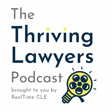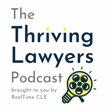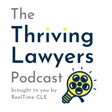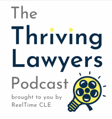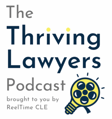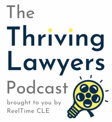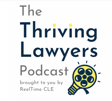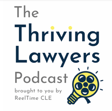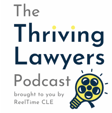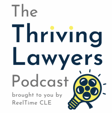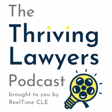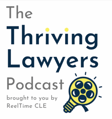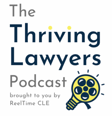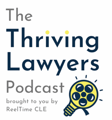
Jordana Confino, Prolific Purveyor of Professionalism and Positive Lawyering
Folks, it just doesn't get any better than this. There aren't sufficient words to describe how relatable, inspiring, brilliant, encouraging, and delightful our friend Jordana Confino is. You may think YOU are a successful Type A Perfectionist, but chances are, you've got NOTHING on this double-Yalie, clerkship-getting superstar.
She was hitting all the hot-spots on the highway to success and getting all the rings & accolades we are primed for in law practice--and yet she somehow realized that she wanted something completely different. The realization nearly wrecked her, as she shares in this lively discussion with Chris, but there's more to the story, and it has a more-than-happy ending.
Her course correction brought her a whole new level of joy and career satisfaction, but even better, her law students at Fordham University School of Law and her coaching clients are reaping the benefits and dividends as well.
And yes, this should be a 2 parter--but you know what, y'all have "pause "buttons, right? :-)
- Jordana's Coaching Website: https://www.jordanaconfino.com/
- Subscribe to Jordana's Blog, Chronicles of a Recovering Type A+ Perfectionist: https://www.jordanaconfino.com/newsletter-sign-up
- Values Discovery Guide: https://www.jordanaconfino.com/values
- Jordana LinkedIn: https://www.linkedin.com/in/jordanaconfino/
